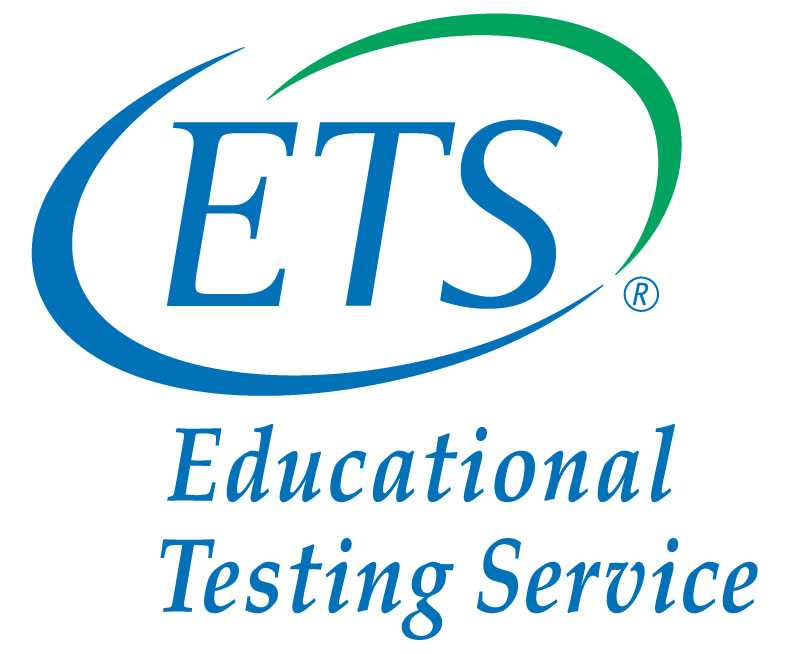Educational Testing Service (ETS) is the world’s largest private nonprofit educational testing and assessment organization. It was founded in 1947 and is headquartered in Lawrence Township, New Jersey, but with a Princeton address.
ETS makes various standardized tests primarily in the United States for K–12 and higher education, and it also administers international tests including the TOEFL (Test of English as a Foreign Language), TOEIC (Test of English for International Communication), Graduate Record Examination (GRE) General and Subject Tests, and The Praxis test Series — in more than 180 countries, and at over 9,000 locations worldwide.
Many of the assessments it develops are connected with entry to US tertiary (undergraduate) and quaternary education (graduate) institutions, but it also develops K–12 statewide assessments used for accountability testing in many states, including California, Texas, Tennessee and Virginia. In total, ETS annually administers 20 million exams in the U.S. and in 180 other countries.
Issues on Educational Testing Service
ETS has been criticized for being a “highly competitive business operation that is as much multinational monopoly as nonprofit institution”. Due to its legal status as a non-profit organization, ETS is exempt from paying federal corporate income tax on many, but not all, of its operations. Furthermore, it does not need to report financial information to the Securities and Exchange Commission, though it does yearly report detailed financial information to the IRS on Form 990, which is publicly available.
To answer the growing criticism of its monopolistic power, the state of New York passed the Educational Testing Act, a disclosure law which required ETS to make available specific test questions and graded answer sheets to students.
Problems administering England’s national tests in 2008 by ETS Europe were the subject of thousands of complaints recorded by the Times Educational Supplement. Their operations were also described as a “shambles” in the UK Parliament, where a financial penalty was called for. Complaints included papers not being checked properly, or not being marked at all and papers being sent to the wrong schools or lost completely. It has even been suggested that the quality of service is so poor that the Department for Children, Schools and Families (formerly the Department for Education and Skills) might not be able to publish the 2008 league tables of school performance. However, the contract was ended by “mutual consent”. The UK government asked Lord Sutherland to make an inquiry into the failure of the 2008 tests. The report comprised in its main findings:
- primary responsibility for this summer’s delivery failure rests with ETS Global BV, which won the public contract to deliver the tests;
- ETS’s capacity to deliver the contract proved to be insufficient. A lack of comprehensive planning and testing by ETS of its systems and processes was a key factor in the delivery failure;
In 1983, students of James A. Garfield High School in East Los Angeles, California, achieved surprisingly high exam results on the ETS Advanced Placement Exam. ETS implied that the students may have cheated to obtain such results based on common mistakes across different exams. The students were required to prove their abilities and innocence by taking a second exam, which they did successfully.
Americans for Educational Testing Reform (AETR) claims that ETS is violating its non-profit status through excessive profits, executive compensation, and governing board member pay (which the IRS specifically advises against). AETR further argues that ETS is acting unethically by selling test preparation materials, directly lobbying legislators and government officials, and refusing to acknowledge test-taker rights. It also criticizes ETS for obliging GRE test-takers to participate in research experiments during the actual exam. It has also come under criticism for compensating its part-time employees, most of whom are drawn from the less than 10% of the U.S. population with graduate degrees, a modest $15 an hour (with no benefits), to grade the essay component of their standardized exams. A minimum of a bachelor’s degree is required of first time raters, and they are paid only $13 hourly.
In 2014 the BBC reported that the Home Office has suspended English language tests run by ETS after a BBC investigation revealed systematic fraud in the student visa system. Secret filming of government-approved English exams needed for a visa presented entire rooms of candidates having the tests falsified for them.
